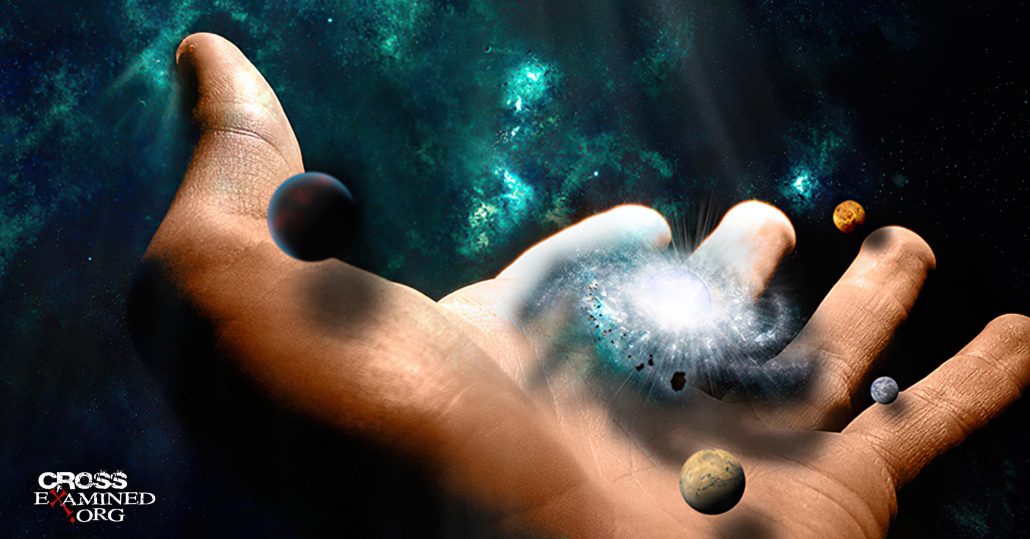The Necessity of a Cosmic Mind
Anyone who is anyone in apologetics has heard of the kalam cosmological argument. Short, concise, and powerful; the kalam argument notes the causal agency behind the origins of the universe. Simply put, the kalam argument holds:
- Everything that begins to exist has a cause.
- The universe began to exist.
- Therefore, the universe has a cause (C&M, 102).
After further researching the kalam argument, it was discovered that an ontological reality underlies the argument. That ontological reality is that one cannot escape the necessity of a Cosmic Mind for three reasons.
1. Necessity from Absolute Beginning of All Physical Universes. Physicists like Stephen Hawking and others posit that this universe is but one of many endless universes. Some theories contend that an endless movement of branes (not brains) collide and cause universes to “pop” into being. Other theories hold that an eternal multiverse gave rise to universes like ours. However, William Lane Craig and others have noted that the BGV theorem, named for its founders (Arvind Borde, Alan Guth, and Alexander Vilenkin), indicates that any and all physical universes demand an absolute beginning. I do not deny that a multiverse could exist. A multiverse is entirely possible as are many other universes. Neither is problematic for the Christian worldview. When one notes the enormity of God’s Being, multiple universes become child’s play for such a God. Nonetheless, mindless universes cannot be the answer to why something exists as they too would require an explanation for their existence.
2. Necessity from an Impossibility of an Infinite Regress. Second, it is impossible for an infinite regress of physical past events to have occurred. That is, endless physical events of the past are impossible. There comes a point where something beyond the scope of the physical world is required to explain physical origins. Craig offers two philosophical arguments to verify this claim.
- An actual infinite cannot exist.
- An infinite temporal regress of events is an actual infinite.
- Therefore an infinite temporal regress of events cannot exist (W&D, 390).
While mathematical infinities can exist, Craig notes that such infinities are a different story when considering physical infinities. Craig does not dismiss infinities. Rather, he holds an Aristotelian model of time where time is viewed as eternal but broken into segments (C&M, 114; W&D, 398-399). However, infinite past physical events are impossible given that actual infinities do not exist in spacetime.
Additionally, Craig argues,
- A collection formed by successive addition cannot be an actual infinite.
- The temporal series of events is a collection formed by successive addition.
- Therefore, the temporal series of events cannot be an actual infinite (W&D, 396).
Herein, no universe or universes could hold an infinite number of additions in time’s past. Thus, physical universes are temporal and finite.
3. Necessity from the Inability of Forms to Explain the First Cause. Some, like Erik Wielenberg, agree that the answer to the finitude of the universe is not found in an infinite regress of events, but rather in transcendent entities. However, these transcendent entities are not God, per se, but mindless Platonic Forms. Yet this is a fairly simple objection to answer. Mindless entities can do nothing. If mindless entities exist in the world of Platonic Forms, they just are. They do not do anything. They exist. Thus, a transcendent Mind is the only logical answer to this problem. This Cosmic Mind would need to be, as Swinburne and Craig note, “immaterial, beginningless, uncaused, timeless, and spaceless” (C&M, 193). Interestingly, the Cosmic Mind that is necessitated sounds a lot like the God of the Bible.
If one follows the trail of necessities, one lands at the necessity of a Cosmic Mind. While this does not necessarily connect the God of the Bible with the Cosmic Mind implied, the similarities are so intricately connected that it would take more faith not to connect God with the Cosmic Mind than to connect the two. This Cosmic Mind knows all and sees all. Thankfully, this Cosmic Mind eventually became the Incarnate Son who provided redemption for all who would receive him.
Source
Craig, William Lane, and J. P. Moreland, eds. The Blackwell Companion to Natural Theology. West Sussex, UK: Wiley-Blackwell, 2012.
Walls, Jerry L., and Trent Dougherty, eds. Two Dozen (Or So) Arguments for God. Oxford, UK: Oxford University Press, 2018.
Recommended resources related to the topic:
I Don’t Have Enough Faith to Be an Atheist (Paperback), and (Sermon) by Norman Geisler and Frank Turek
What is God Like? Look to the Heavens by Dr. Frank Turek (DVD and Mp4)
God’s Crime Scene: Cold-Case…Evidence for a Divinely Created Universe (Paperback), (Mp4 Download), and (DVD Set) by J. Warner Wallace
God’s Crime Scene: The Case for God’s Existence from the Appearance of Design (mp4 Download Set) by J. Warner Wallace
God’s Crime Scene: The Case for God’s Existence from the Appearance of Design in Biology DVD Set by J. Warner Wallace
Brian G. Chilton is the founder of BellatorChristi.com, the host of The Bellator Christi Podcast, and the author of the Layman’s Manual on Christian Apologetics. He received his Master of Divinity in Theology from Liberty University (with high distinction); his Bachelor of Science in Religious Studies and Philosophy from Gardner-Webb University (with honors); and received certification in Christian Apologetics from Biola University. Brian is enrolled in the Ph.D. program in Theology and Apologetics at Liberty University and is a member of the Evangelical Theological Society and the Evangelical Philosophical Society. Brian has served as a pastor in pastoral ministry for nearly 20 years.
Original Blog Source: https://cutt.ly/6gEo6mO












Leave a Reply
Want to join the discussion?Feel free to contribute!